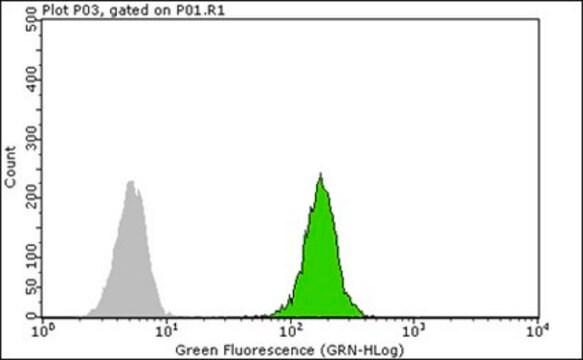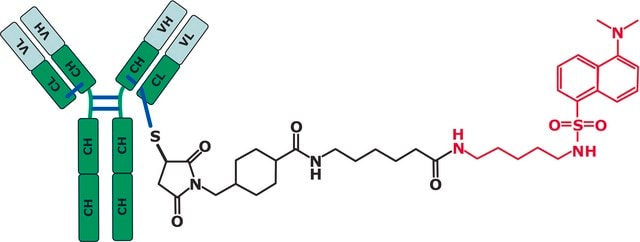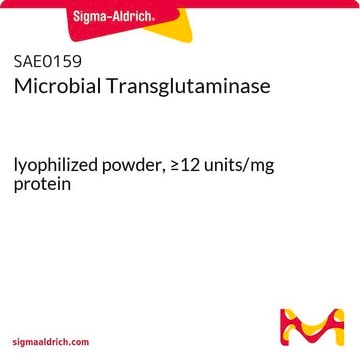30432
Dansylcadaverine
suitable for fluorescence, BioReagent, ≥99.0% (HPLC)
Sinónimos:
N-(5-Aminopentyl)-5-dimethylaminonaphthalene-1-sulfonamide, N-(Dimethylaminonaphthalenesulfonyl)-1,5-pentanediamine, Monodansyl cadaverine
About This Item
Productos recomendados
product line
BioReagent
assay
≥99.0% (HPLC)
mp
137-140 °C
fluorescence
λex 335 nm; λem 518 nm in methanol
λex 338 nm; λem 500 nm (Reaction product)
suitability
suitable for fluorescence
storage temp.
−20°C
SMILES string
CN(C)c1cccc2c(cccc12)S(=O)(=O)NCCCCCN
InChI
1S/C17H25N3O2S/c1-20(2)16-10-6-9-15-14(16)8-7-11-17(15)23(21,22)19-13-5-3-4-12-18/h6-11,19H,3-5,12-13,18H2,1-2H3
InChI key
MLEBFEHOJICQQS-UHFFFAOYSA-N
¿Está buscando productos similares? Visita Guía de comparación de productos
Application
Biochem/physiol Actions
Packaging
Other Notes
signalword
Warning
hcodes
Hazard Classifications
Eye Irrit. 2 - Skin Irrit. 2 - STOT SE 3
target_organs
Respiratory system
Storage Class
11 - Combustible Solids
wgk_germany
WGK 3
flash_point_f
Not applicable
flash_point_c
Not applicable
ppe
dust mask type N95 (US), Eyeshields, Gloves
Certificados de análisis (COA)
Busque Certificados de análisis (COA) introduciendo el número de lote del producto. Los números de lote se encuentran en la etiqueta del producto después de las palabras «Lot» o «Batch»
¿Ya tiene este producto?
Encuentre la documentación para los productos que ha comprado recientemente en la Biblioteca de documentos.
Los clientes también vieron
Nuestro equipo de científicos tiene experiencia en todas las áreas de investigación: Ciencias de la vida, Ciencia de los materiales, Síntesis química, Cromatografía, Analítica y muchas otras.
Póngase en contacto con el Servicio técnico












